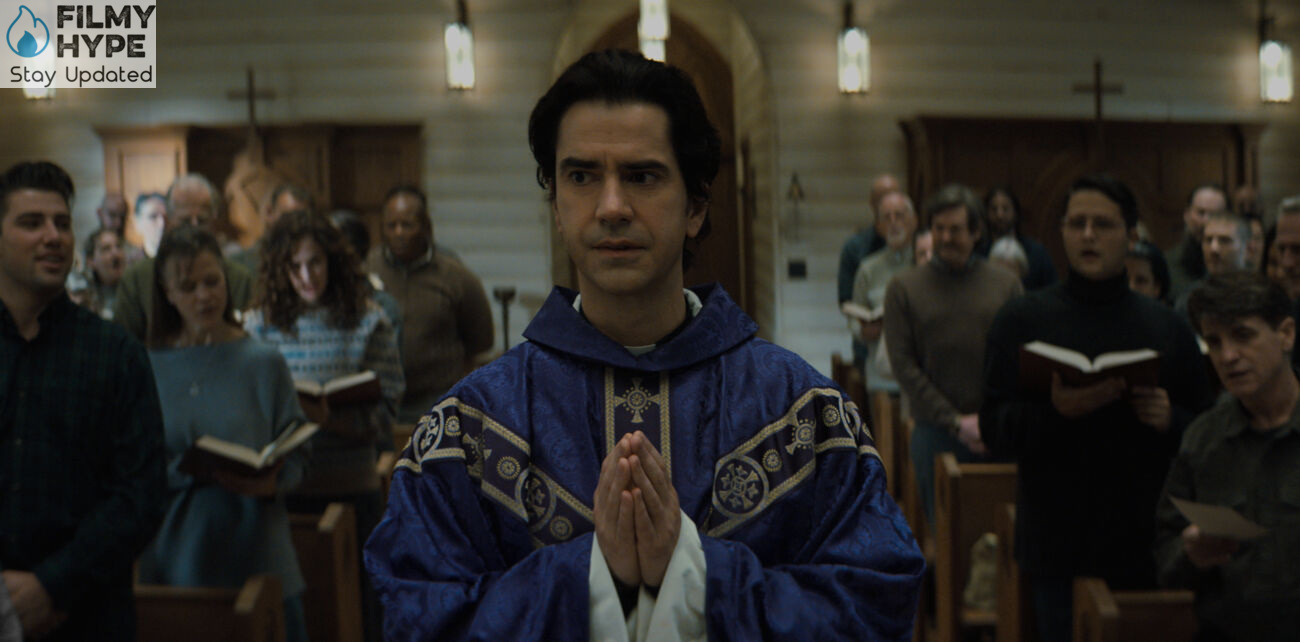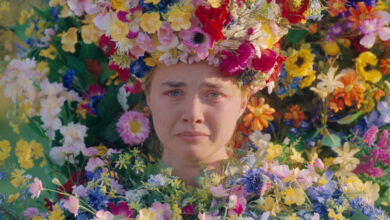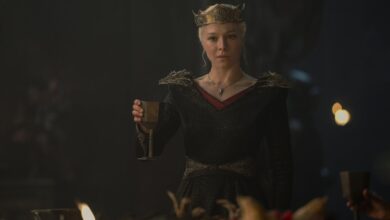Midnight Mass: Ending Explained Erin Greene’s Speech? What Happened To The Creature?
Ed and Annie Flynn's Song? Erin Greene's Speech: What happens When We Die?
Apocalypse is the title of the last episode of Midnight Mass: what is its meaning and what are the literary references to which Mike Flanagan could have inspired. Mike Flanagan has most likely made what is to be considered – at the moment – his most ambitious work, namely Midnight Mass. The mystery / horror TV series available on Netflix consists of 7 episodes set on the island of Crockett Island, where a community very devoted to the Christian God lives.

The Midnight Mass Ending Explained: What Happed At The End
The plot of the series revolves around the interpretation of sacred texts and their application to real life. In Midnight Mass, Father Paul – who is actually a young Monsignor Pruitt – interprets what for everyone would be a curse (he turns into a vampire) into a divine blessing, even mistaking his executioner (the winged vampire) for a benefactor angel. Father Paul’s devotion to God is absolute. He believes it so blindly that he doesn’t see the evil in what happened to him. Then Father Paul brings his “divine” experience (which also includes the original vampire) with him to the island, truly convinced that he can do good to his community.
Mass after mass, Father Paul has the blood of the winged vampire ingested – unbeknownst to the believers – mixing it with the communion wine. This turns humans into potential vampires. In order to complete the human / vampire transition and gain eternal life, it is necessary to die to resurrect. The parallelism used by Mike Flanagan is that of Easter or the resurrection of Christ after death on the cross.
So for the Easter mass that takes place at midnight (hence the title of the series), Pruitt and her collaborator Bev plan to ask practitioners in the church for a leap of faith: ingest rat poison in order to die from. then resurrect a few minutes later.
Most of those present follow the priest’s advice as their minds are now conditioned by what they have seen (the miracle of Leeza for example) and by what the priest has repeated to him meeting after meeting using suggestive verses of the Bible carefully chosen. Furthermore, the presence of the winged vampire / angel in the church has “enlightened” the faithful.
Father Paul, however, did not speak of the “side effects” of this religious practice: thirst for blood and death in the event that one is exposed to the rays of the sun. The unstoppable hunger of the transformed present triggers chaos inside the church: children eating their parents and husbands sucking the blood of their spouses!
Thus ends the sixth episode – entitled Acts of the apostles – which lives in the parallelism between the stories of the journeys of the apostle Paul (this explains the choice of the new name of Pruitt) and those of Father Paul in the Holy Land. Moreover, as happens for Paul in the Acts of the Apostles, also in Crockett Island the will of the disciples to spread the word increases.
The seventh episode is instead entitled Apocalypse , which from the Greek origin means “revelation”. The revelation in the Bible is given by the manifestation of God at the end of time . In this episode the living run away from blood-hungry vampires but among them there is an important distinction: some vampires decide to hold back and not drink other people’s blood.
This means that the way you behave matters more than words. Bev, for example, would seem the most religious and devoted of all, but she is the last to follow the correct path of faith: she kills and is evil with those who do not offer her an advantage. On the contrary, the Flynn spouses or Mrs. Gunning (Dr. Sarah’s mother) decide to calm down and behave, just as they were in life. This way of showing one’s true nature shows that what Father Paul believed was bad and not good: not eternal life but an eternal curse. As proof of this, the same father Paul distances himself from the new bloodthirsty vampires and apologizes for his work.
Ed and Annie Flynn’s Song
When Annie hugs her husband Ed again at the end of the last episode of Midnight Mass, she sings a song that all the islanders will then sing. The moment is very exciting because everyone realizes that as soon as dawn comes, everyone as vampires will die for real.
The song chosen by Flanagan is Nearer, My God, to Thee or a Christian hymn based on Jacob’s dream, narrated in the Book of Genesis. In his dream Jacob said he saw a ladder from which angels ascended and descended from heaven to earth and vice versa. Nearer, My God, to Thee is considered a farewell song. In fact, the passage speaks of closeness to God and whoever sings it asks the Lord for peace.
Fun fact: this same song was used by James Cameron in the movie Titanic. Legend has it that the musicians in their last moments, before sinking, played just this song:
Erin Greene’s Speech: What happens When We Die?
Erin Green answers the question with a long, articulate and complex speech. You say that the body is an empty space like a container. It says that we are made of energy, that we exist before and after life. And this is made up of images and memories. Everything is based on the energy that flows in our body in life and turns on the neurons of the brain with many small lightnings. All this gives us images and memories.
When we die this energy leaves the dying body and moves elsewhere, to some other galaxy in the infinite universe. Each of us is therefore a part of something greater. Then, in her speech, Erin refers to dreams:
“We are that cosmos that dreams of itself. It’s a simple dream that I think is my life every time, but I forget it on time. I always forget my dreams.”
Basically Flanagan brings into play the reincarnation of a life energy that never dies. This energy carries with it the dream (the set of images and memories) in the next “container” to be brought to life. In this context it is worth remembering a famous phrase by William Shakespeare written in the play entitled The Tempest:
“ We too are made of the stuff dreams are made of and our short life is surrounded by sleep.”
The parallelism with the English playwright does not seem to be a coincidence, given that the latter wrote, in Il Mercante di Venezia, that our souls are immortal and enclosed in a “crude container of mud”.
What Happened To The Creature?
This explanation of the Midnight Mass ending ends with an unanswered question mark: what happened to the winged creature? Well at the end of the last episode the vampire is trying to escape from the island, which offers no shelter from the sun. The vampire’s wings are torn and that should slow his flight as young Warren Flynn says (save in his canoe with Leeza). Unfortunately, however, the viewer cannot understand if the vampire manages to save himself in some way or if he dies incinerated by the sun’s rays.
Obviously there is no answer but one can think that Mike Flanagan has “left a door open” for a possible second season of Midnight Mass. At the moment there is no official release on the matter, but – if he was saved – the vampire could reach another place and start a new story.





Hi! I’m pretty sure the fake angel actually died at the very end, since the very last words that are spoken on the show are from Leeza and she says « I can’t feel my legs », just like if the curse was now broken
Was not a curse, what the blood of the vampire wearing off from they body(like drugs, alcohol,etc) the doctor explains it.
They use to drink it every time they went to the church (mixed with the wine)
We better give Sagan credit as the brilliant mastermind who likely inspired this:
“The cosmos is within us. We are made of star-stuff. We are a way for the universe to know itself.”
― Carl Sagan
Yeah, I noticed that too. The first thing I though off when I heard that character’s speech.